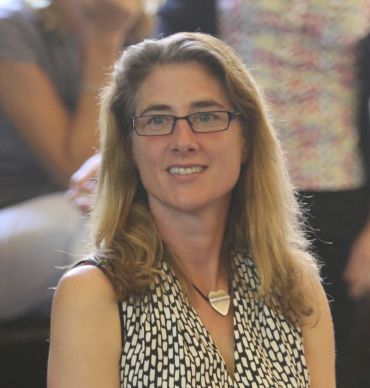Enabling Research in Low-Income Settings During Disease Outbreaks: Implementing, Learning and Preparing
In disease outbreaks, such as Ebola, Zika and now COVID-19 it is essential that research is undertaken and that this is equitable across the globe. The difficulty is that many nations do not have the capabilities to initiate and support research within their healthcare settings.
 Professor Trudie Lang
Professor Trudie LangThis is precisely what they are now putting into action with COVID-19. Here they are pulling together a global research implementation community through several mechanisms such as virtual workshops and developing observational study and clinical trial implementation tools. They are galvanising the international cooperation between research teams, as WHO requested when this was declared a public health emergency. The impact from Zika and Ebola was faster and better evidence put rapidly into practice.
They have strong impact data from these outbreaks where hundreds of thousands of research protocols, standard templates and data capture forms were downloaded and used in research. They have had over 1 million research skills training courses taken and the platform has been accessed over 30 million times. With this COVID-19 outbreak, they are supporting the preparation for a response in the most challenging settings to gather data, with teams who otherwise would not have the capacity to engage. They are also making sure they learn as they go to further mitigate impact within the next outbreak.
July 2020 UPDATE
The team have been working flat out as they have been overwhelmed by the level of response and demand from the research community across some of the most resource-limited places in the world. They report that it has been very moving to hear the experiences of their partners working in extraordinary settings and working to provide the support their partners have requested has been difficult, but rewarding.
The team’s platform is now being used by the WHO, Gates, international research consortia and many other major organisations as a mechanism for engaging with researchers in Low- and Middle-Income Countries (LMICs). The knowledge hub has been accessed over 320,000 times from over 98 countries. They are providing a range of research methods, protocol, training and support systems and these are being taken up and implemented.
The uptake has been so strong that, in May 2020, the team were asked by the global body of health research funders to determine the current research priorities because the WHO research priority roadmap did not include LMICS. They undertook this work and their findings were simultaneously released as a report, all the data and a paper in June 2020. For further information, a workshop recorded in June 2020 features the views of researchers around the globe who contributed to these findings.
All this work with COVID-19 draws on the innovative approach of The Global Health Network which works in this way to support research in diseases of poverty and build on the team’s work in previous outbreaks. In order to enable a sustainable income to secure access to these resources for researchers and health workers in LMICS a social enterprise has been set up. The company was formed on 12 June 2020. This is the first social enterprise to be set up through Oxford University Innovation and the University of Oxford’s Medical Sciences division and creates a mechanism to secure funding sources not previously available to the team. The goal is to ensure free and open access to health workers and researchers across the globe who cannot afford to pay and would never otherwise be able to access the University of Oxford’s quality support, training and learning opportunities.